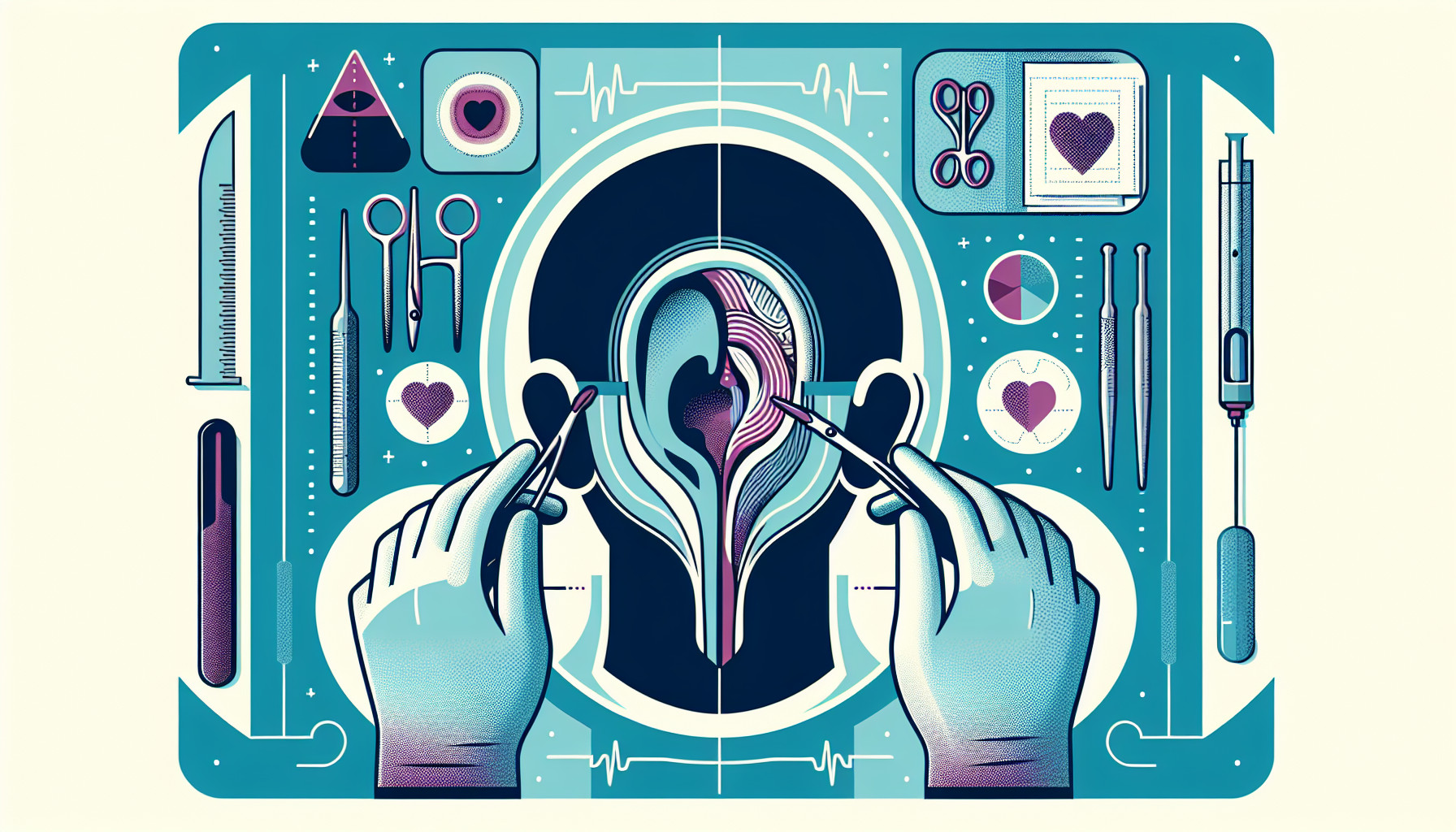Our Summary
This research paper discusses a new kind of ear tube made of a material that the body can safely absorb. These ear tubes are used in surgeries to help remove fluid from behind the eardrum in both children and adults. However, traditional tubes can cause complications if they stay in the ear too long. In this study, the new tubes were tested on 14 patients. The tubes stayed open and functional for an average of 12 weeks and were then absorbed by the body. No blockages were observed. The study concludes that the use of these new absorbable ear tubes is feasible.
FAQs
- What is the new type of ear tube mentioned in the research paper?
- How long do the new absorbable ear tubes stay open and functional?
- Were there any complications observed with the new absorbable ear tubes in the study?
Doctor’s Tip
One tip a doctor might tell a patient about ear tube surgery is to keep the ears dry and avoid getting water in the ears, especially during activities such as swimming or bathing. This can help prevent infection and complications during the healing process.
Suitable For
Patients who are typically recommended for ear tube surgery are those who suffer from chronic ear infections, fluid buildup behind the eardrum, or recurrent ear infections that do not respond to other treatments. Children are most commonly recommended for ear tube surgery, as they are more prone to ear infections due to their developing immune systems and smaller Eustachian tubes. However, adults with similar ear issues may also benefit from ear tube surgery.
In the case of the new absorbable ear tubes mentioned in the research paper, these may be recommended for patients who need ear tubes but are at risk of complications from traditional tubes staying in the ear too long. The absorbable nature of these tubes eliminates the need for a second surgery to remove them, reducing the risk of scarring or other complications associated with long-term tube placement.
Overall, patients recommended for ear tube surgery may have a history of chronic ear infections, recurring ear infections, issues with fluid buildup behind the eardrum, or other related ear problems that do not respond well to other treatments. The specific recommendation for surgery, as well as the type of ear tube used, will depend on the individual patient’s medical history and symptoms.
Timeline
Before Ear Tube Surgery:
- Patient experiences frequent ear infections or fluid buildup in the middle ear.
- Patient visits an ENT specialist for evaluation and discussion of treatment options.
- ENT specialist recommends ear tube surgery as a solution for recurrent ear issues.
- Patient undergoes pre-operative testing and preparation for surgery.
During Ear Tube Surgery:
- Patient is placed under anesthesia.
- ENT specialist makes a small incision in the eardrum and inserts the ear tube to allow for drainage of fluid.
- Surgery typically lasts less than 15 minutes and is performed on an outpatient basis.
After Ear Tube Surgery:
- Patient may experience temporary discomfort or drainage from the ear.
- Follow-up appointments are scheduled to monitor the ear tube’s effectiveness and check for any complications.
- Ear tubes typically remain in place for several months to a few years, depending on the individual’s condition.
- If ear issues persist or the tubes become blocked, a follow-up surgery may be needed to replace or remove the tubes.
- In the case of absorbable ear tubes, the tubes dissolve on their own after a certain period of time, eliminating the need for a follow-up surgery for removal.
Overall, ear tube surgery is a common and effective treatment for recurrent ear infections and fluid buildup. With the development of absorbable ear tubes, patients may experience a more convenient and less invasive treatment option.
What to Ask Your Doctor
- What are the potential risks and complications associated with ear tube surgery?
- How long will the ear tubes stay in place before they are absorbed by the body?
- What are the expected outcomes of the surgery in terms of improving hearing and reducing ear infections?
- How will the absorbable ear tubes affect my daily activities and lifestyle?
- What post-operative care and follow-up appointments will be necessary after the surgery?
- Are there any restrictions on swimming, flying, or other activities after getting ear tube surgery?
- How will I know if the ear tubes are causing any issues or need to be removed before they are absorbed?
- Will I need additional surgeries or treatments in the future related to the ear tubes?
- How experienced are you in performing ear tube surgery with absorbable tubes?
- Can you provide me with more information or resources about absorbable ear tubes and their effectiveness compared to traditional tubes?
Reference
Authors: Skovlund S, Cofer S, Weinreich H. Journal: Otolaryngol Head Neck Surg. 2022 Mar;166(3):598-600. doi: 10.1177/01945998211026543. Epub 2021 Jul 13. PMID: 34253079
